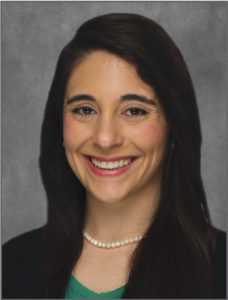Q and A with Author Madeline Marks
Q1. What led you to the study of clinical psychology?
I've always loved the study of medicine and knew early on that I wanted to pursue a degree in clinical psychology. My research grew from the culmination of these interests. They have led me to research focused on the prevention and treatment of stress-related mental health injury.
Q2. Why research intoemergency communications?
To date, few studies have examined rates of stress-related pathology and subsequent impairment in emergency dispatchers. Our research so far has identified Emergency Dispatchers as an at-risk population for stress-induced mental health symptoms. While further research continues to assess emergency dispatch[ers] and their well-being, we are ultimately interested in preventative and therapeutic interventions that will work for professionals in this environment.
Q3. In what areas do you plan to specialize?
The prevention and treatment of anxiety disorders and PTSD in high stress occupations.
Q4. What led you to this choice?
I am fascinated by the interaction of mind and body and the interplay between the two. My optimal choice is working with first responders and veterans, bridging the gap between the science of psychology and the practice.
Q5. Finally, what is your advice to budding researchers in emergency communications?
Look around your center and find a question. What is it you want to know more about? Find a mentor. Reach out to the Academy. There are many people available to assist in answering your question. NAVIGATOR is a perfect place to start. It provides an atmosphere of like minds, thirsty for knowledge and growth. In my own experience, I owe the Academy research team a debt of gratitude for their support and encouragement.
RESEARCH BACKGROUND
Madeline worked as an EMT prior to graduate school, which helped direct her research interests toward the mind-body interaction related to stress, recognizing symptoms, and finding ways to prevent symptoms that could lead to post-traumatic stress disorder (PTSD). Her research has investigated stress, anxiety, and performance, including mental health issues. Madeline's master's project provides an examination of the utility of one specific measure of compassion fatigue.
She has presented her research at several academic settings including NAVIGATOR, a conference sponsored by the International Academies of Emergency Dispatch (IAED), where she highlighted research into emergency dispatch and the practical application of stress management in the communication center. She and a group of associated researchers focus their dispatch research in the areas of burnout, stress, and turnover.
In addition, Madeline has found willing survey participants at NAVIGATOR, who provide insight into issues that could, alone or in combination, adversely affect the individual. The domains include workload demands, interaction among peers and management, and coping with stress after a traumatic or stressful emergency dispatch event. The 205 emergency dispatchers completing an initial survey in 2014 reported work-related rates of Acute Stress Disorder, Secondary Traumatic Stress, and Occupational Burnout exceeding those found in the general population. The results from the study were published in issue 3.1 of Annals of Emergency Dispatch & Response.
A second survey of emergency dispatchers was conducted at NAVIGATOR 2015. The study compared symptoms of PTSD in emergency dispatchers and military personnel. The results from the study are published in this issue.
Another survey, conducted at NAVIGATOR 2017, builds on her previous work, with an emphasis on identifying factors contributing to stressful reactions. The purpose of the 2017 survey is to replicate portions of the broader "Survey about Mental Health and Suicide in the United States" with specific applicability to emergency dispatch. The results will hopefully provide information about developing tailored prevention programs for first responders.
Application of the Research
In June of this year, Madeline received the Governor's Medal of Unity (Florida, presented by Gov. Rick Scott in Orlando, Florida). The award recognized Madeline and UCF Psychology Professor Deborah Beidel for the therapeutic help they provided to survivors, emergency dispatchers, and field responders following the mass shooting at the Pulse nightclub in Orlando on June 12, 2016.
Madeline works under Professor Beidel's supervision at the UCF RESTORES clinic, treating patients with anxiety disorders and Post Traumatic Stress Disorder (PSTD). UCF RESTORES is a clinical research center devoted to the treatment of stress and post-traumatic stress disorder. For more information, please visit http://sciences.ucf.edu/psychology/ucf-restores/.
Madeline Marks

Madeline Marks graduated Magna cum Laude with a B.A. in Sports Psychology and minor in Psychology from the University of Connecticut (UCONN) in 2012 and was designated a University Honors Scholar as well as a Babbidge Scholar. She is a doctoral student in the Clinical Psychology Program at the University of Central Florida (UCF). She was recently awarded the Order of Pegasus, recognizing her academic achievements and work with the local first responder community. She is interested in prevention and treatment of anxiety disorders and PTSD in high-stress occupations and integrating technology into clinical research and practice.
